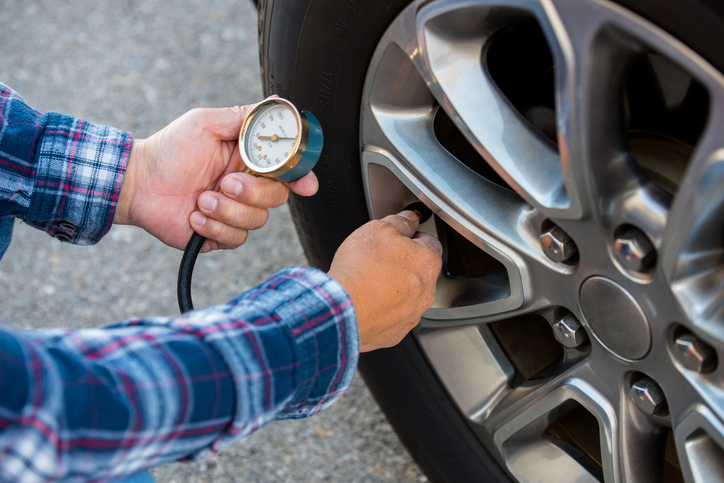
Even though gas prices have decreased somewhat, they’re still too high. Like other drivers, you’re probably looking for ways to spend less at the fuel pump. Remember, always maintain the correct tire pressure. That alone will make a significant difference.
Why Does Tire Pressure Matter?
An excellent way to improve fuel efficiency is by making it easier for your vehicle to move. Because underinflated tires are soft, they produce more rolling resistance between them and the road’s surface. In simple terms, your car will have to work harder than usual as you drive. As a result, it’ll use more gas, which equates to more money.
The United States Department of Energy states that maintaining proper tire pressure saves one as much as 3% in gas. If you currently pay $4.00 per gallon and have a vehicle with a 20-gallon tank, you’d save roughly $125 a year.
Prevent Safety Risks
Tires that aren’t properly inflated will increase the amount of gas your car uses. In addition, they can put the safety of anyone in your car at risk. If the tires have too much pressure or not enough, it’ll take longer for your car to stop. Also, this can lead to blowouts. You’ll probably notice a difference in how your vehicle handles, as well.
Maintenance Tips
To avoid paying unnecessary money for gas and potential dangers, you need to maintain the tires on your vehicle. Here are some easy ways to do that.
Check Tire Pressure
At least once a month, check the pressure. You’ll find the recommended PSI (pounds per square inch) on the side of the tire or in the owner’s manual. If you still need help, stop by a reputable dealership for assistance. However, during the cold winter months, when tires normally deflate to some degree, you should check them more frequently.
Tire Rotation
Unless you have the tires rotated, they’ll wear more in one area than another. When that happens, you’ll experience poor handling and spend more on fuel. In addition, the wear patterns could make it hard to stop, or your car could slide on slick surfaces. As a good rule of thumb, have them rotated twice annually.
Have a Certified Technician Check the Wheel Alignment
As part of this, a technician will adjust the wheel’s angles based on the automaker’s specifications. This is an excellent way to prevent the tires from wearing down prematurely. If that occurs, your vehicle would likely pull to one side. However, wheels that aren’t aligned can compromise driving performance and increase fuel consumption.
Invest in New Tires
While no one looks forward to buying new tires, they don’t have a choice when the old ones wear out. Regardless of where you live, consider all-weather tires. Immediately, your vehicle will become more fuel efficient. It’ll also handle better and stop without any problem.
You might also like: Not Sure What Oil Additives Are? Let Us Help
Spend Less and Save More
Follow these tips so that you don’t spend as much on gas and can put more money in your pocket. If you need help with maintenance tasks, schedule an appointment with the service center at Honda North in Pittsburg, Pennsylvania.
Disclaimer: The stock image is being used for illustrative purposes only, and it is not a direct representation of the business, recipe, or activity listed. Any person depicted in the stock image is a model.
